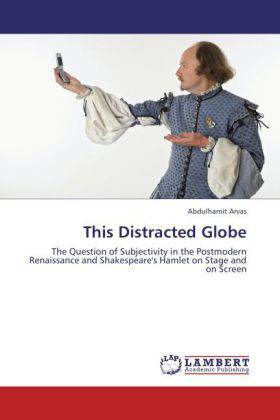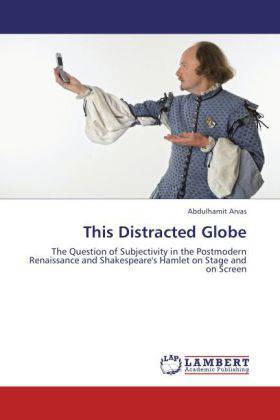
Bedankt voor het vertrouwen het afgelopen jaar! Om jou te bedanken bieden we GRATIS verzending (in België) aan op alles gedurende de hele maand januari.
- Afhalen na 1 uur in een winkel met voorraad
- In januari gratis thuislevering in België
- Ruim aanbod met 7 miljoen producten
Bedankt voor het vertrouwen het afgelopen jaar! Om jou te bedanken bieden we GRATIS verzending (in België) aan op alles gedurende de hele maand januari.
- Afhalen na 1 uur in een winkel met voorraad
- In januari gratis thuislevering in België
- Ruim aanbod met 7 miljoen producten
Zoeken
This Distracted Globe
The Question of Subjectivity in the Postmodern Renaissance and Shakespeare's Hamlet on Stage and on Screen
Abdulhamit Arvas
Paperback | Engels
€ 63,45
+ 126 punten
Omschrijving
This book demonstrates how contemporary theories of subjectivity have their roots in early modern philosophical and literary arguments, particularly in Shakespeare s distracted Globe. Abdulhamit Arvas discusses Shakespeare s Hamlet in relation to the modernist idea of the autonomous self and the postmodernist idea of the decentered subjectivities to explore the notion of the self in early modern thought and to suggest how Hamlet s preoccupation with philosophical and rhetorical modes of self-display can be seen as anticipating certain postmodern theories. This work offers an interpretation for Hamlet s subjectivity from a postmodernist point of view which asserts that the play examines the very discursive formulation of the self and uncovers the fragility of the idea itself. In conjunction with these arguments, the book includes a close analysis of Hamlet s postmodern film adaptations of Coronado and Almereyda versions in particular to elucidate the early modern- postmodern relations. By offering new insights to the question of subjectivity and closely analyzing movie adaptations of Hamlet, this book is a contribution to discussions in Shakespeare and Shakespearean film studies.
Specificaties
Betrokkenen
- Auteur(s):
- Uitgeverij:
Inhoud
- Aantal bladzijden:
- 100
- Taal:
- Engels
Eigenschappen
- Productcode (EAN):
- 9783846587188
- Verschijningsdatum:
- 3/02/2012
- Uitvoering:
- Paperback
- Afmetingen:
- 150 mm x 6 mm
- Gewicht:
- 151 g

Alleen bij Standaard Boekhandel
+ 126 punten op je klantenkaart van Standaard Boekhandel
Beoordelingen
We publiceren alleen reviews die voldoen aan de voorwaarden voor reviews. Bekijk onze voorwaarden voor reviews.









